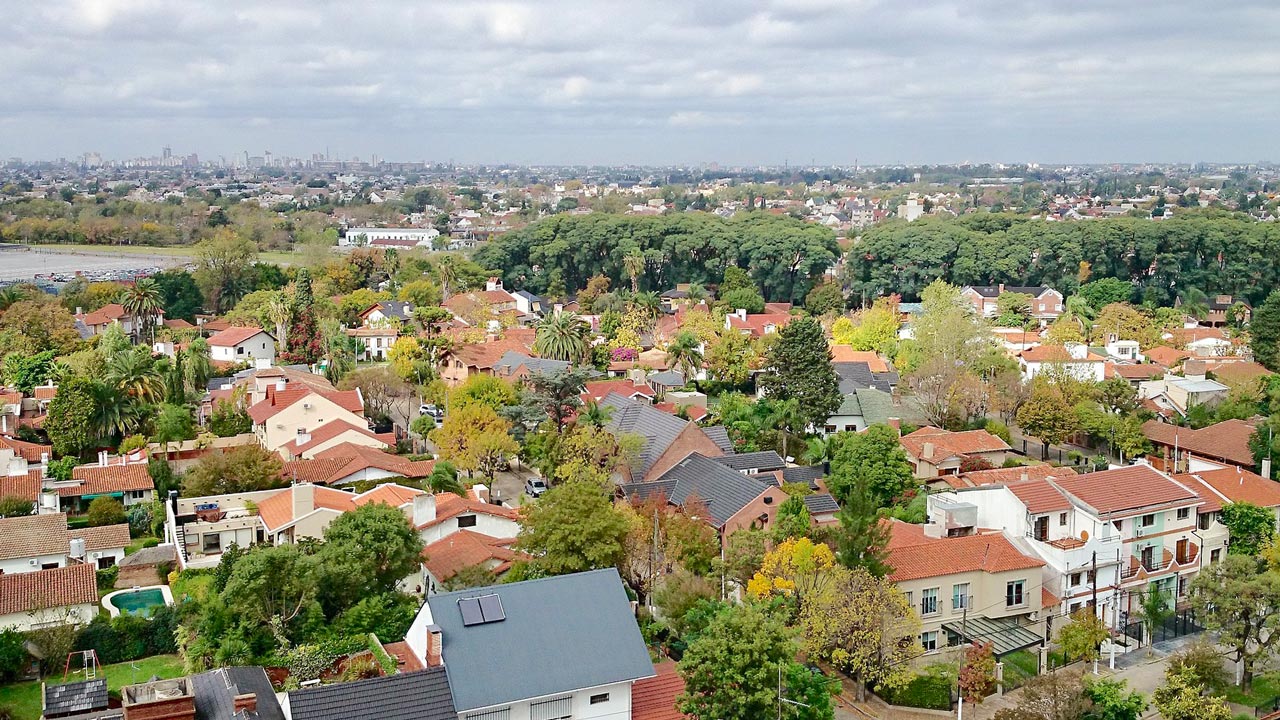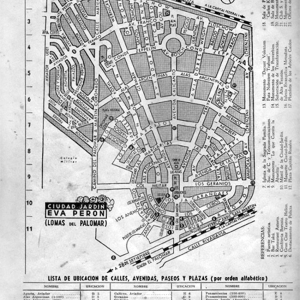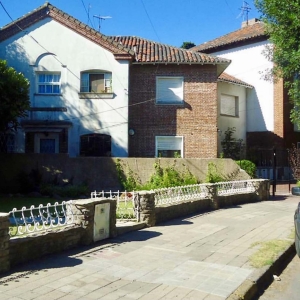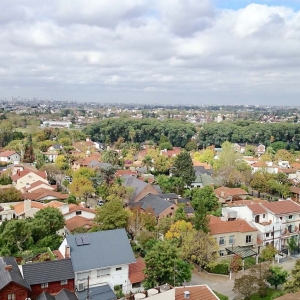
Ciudad Jardín Lomas del Palomar
Buenos Aires, Argentina
Argentinian garden village, the brain child of German immigrant Erich Zeyen.
| Garden City Type: | Mixed (housing association / municipality / other) |
| Country: | Argentina |
| City: | Buenos Aires |
| Years of construction: |
1943 Start construction
|
| Initiator/client: | Erich Zeyen |
| Architect or related: |
Erich Zeyen Dr. Erich E. Zeyen (1899-1969). |
| Heritage status: | No |
| General condition of Garden City: | Good condition |
General description
The German emigrant and businessman Erich Zeyen had moved to Argentina in 1929. He was familiar with the the garden city movement in Germany and wanted something similar in his new country. His idea was "to create a preconceived city and organic development, provided with the comfort of the big city, and with the charm of the countryside".
Zeyen, together with his friend Dr. Germán Wernicke, created the Financiera Industrial Nacional Construcciones y Anexos SA (FINCA) company in 1935. It created all kinds of construction works throughout the first half of the 20th century. FINCA purchased land on the western outskirts of Buenos Aires in 1942. The first residents moved in 1944 in what became know as Ciudad Jardín Lomas del Palomar. By 1953, 3407 houses had been built, housing 15.331 inhabitants, together with amenities such as schools, churches, and shopping centers.
Architecture / Urban planning
The layout of Ciudad Jardín Lomas del Palomar is designed with a balance between the benefits of urban and rural life in mind and with pedestrians placed centrally. All facilities are compact and within walking distance of housing areas. There are three arcaded residential-commercial plazas (town squares) with central greenery and a variety of amenities. There are a number of public plazas and plazoletas (mini plazas) that are generally surrounded by restaurants and other businesses.
Houses are made up of tile roofed row style and free standing chalets in tree-lined streets and boulevards. Many of its streets were named after plants.
Sources
- Website URL
- Website URL
Video impression (YouTube)
- Website URL
The Story of Garden City. Extracted from the Tribute to Dr. Erich Zeyen (year 1970)
- Publication
Dominguez Edgardo German, Erich Zeyen: Germans, urban planning and housing plans during Peronism. 1943-1955 (National University of Cuyo, Mendoza, 2013). [in Spanish]













